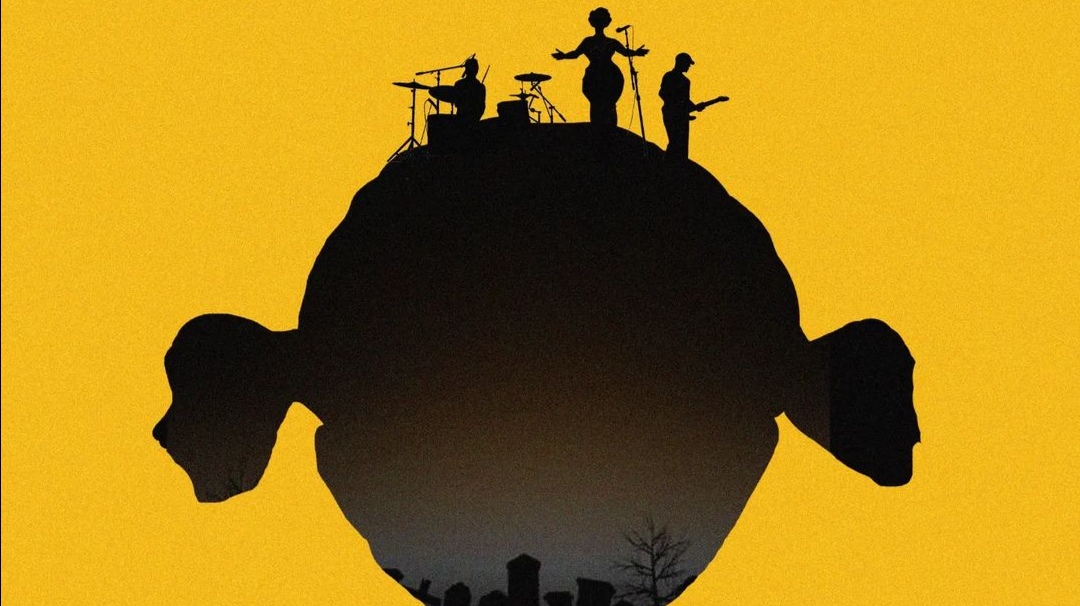There are over 73 theatres and 250 screens across the country (Comscore). Yet one can still get a sense of a hangover from the belief that profiting at the Nollywood Box Office is still mostly at the behest of the capricious arms of mother luck. There is something larger at play. Because despite a few ivory tower wins here and there, most Nollywood theatrical releases are still not breaking even, talk more of making a profit. There seems to be something really off that we could give more attention to, a gaping gulf hiding in plain sight.
 Dear Nollywood, The Northerners are (Actually) Watching
Dear Nollywood, The Northerners are (Actually) Watching
Some say that it has to do with technical know-how. But recent cinematic Nollywood offerings have displayed glimpses of growth in the technical department. So what then can the issue be? The storytelling? Perhaps, but when you inspect closely, you discover that a handful of Nollywood theatrical releases in recent times have shown intention in the story department. Some to the good, others to deceive. Yet for the ones that came good, making a profit is still a big issue. This means there is something else looming large even over the issue of storytelling (which requires care as well). Could it be the acting? Nollywood is definitely blessed with great actors. So, this surely can’t be the issue.
What then do I think is the issue? The quality of producers and directors? Definitely not! Nollywood boasts arguably some of Africa’s most talented, creative, and experienced producers and directors. When you examine it closely again, you begin to wonder. Where else could we inspect? The Executive Producer, whose ostensibly only job is to bring the money for the movie production? Who most times gives a director or a producer money and retreats into the background, with little or no interest in how the movies are made, but eagerly awaits their ROI? Could they be a factor that ensures our theatrical releases fare better?
And the answer is, YES! The Executive Producers are one of the major yet overlooked figures that we need to pay more attention to in order to improve the fortunes of our films. The misconception and misinterpretation of the Executive Producer role; the one role that is deeper and more serious than it is taken, in Nollywood. This has been an oversight (pun intended) and one of the major reasons why most Nollywood cinema movies are not breaking even or even making profits at the Box Office even though our cinema screens have slowly increased over time, technical knowledge has improved, storytelling has shifted, acting/star power present, and boast efficient producers and directors at the helm.
Apart from the ivory tower few in the industry, who are already privy to the knowledge of the overwhelming influence (and potential) of an Executive Producer on the commercial success of a movie, and are thus utilizing it to their advantage, whilst the rest (such as first-time filmmakers) of the industry are still adrift—Nollywood movies are still struggling to break even. Chuks Ejiofor, an experienced filmmaker in Nollywood who sees the Executive Producer role as more than a title, believes that a lot of people no longer hope for the best, they just hope to avoid the worst when it comes to investing in Nollywood films.
Before we x-ray the reasons some parts of the industry seem to be underutilizing the Executive Producer role, which to a certain extent might not be solely their fault, we have to first unravel what the role of an Executive Producer truly demands. An Executive Producer is the overriding factor in a movie project and must loom large over the project. They ensure that the creative and technical side of the movie project is properly married with the business side of things. The Executive Producer has to have a working knowledge and understanding of virtually all phases of film production and film business, alongside having some business sense or acumen.
They should be able to liaise and negotiate with distributors, can be hired by an investor to oversee and ensure the commercial success of a movie project and/or may, themselves, have also solely funded or invested capital in a movie project alongside other investors (who also get credits as Executive Producers, if they so please). Now, one unique thing about being an Executive Producer is that you can oversee more than one movie project at once; attending to each at scheduled intervals. While as a producer, you can’t do that, as you are heavily involved in the daily operations of the production.
Now, x-raying the reasons why the rest of the industry seems to be ignorant of the demands of the Executive Producer role, you will discover that at the cradle of it all, lies misconception. Due to the very informal nature of business transactions in Nollywood, there has been a gross miseducation of who an Executive Producer is or should be. The informal/unsystematic methods of sourcing for funding for movie projects in Nollywood is one of the perpetrators of this misconception.
We see directors and producers (as it also happens elsewhere) sourcing for funding to make movies, which informally makes them Executive Producers, even when some inexperienced ones are likely not equipped with the skill sets of an Executive Producer. As they are the ones with the funding, this means they are most likely going to attempt to carry out the role of Executive Producer alongside their own role of expertise as producer or director. This creates a recipe for Box Office disaster. Hence, this practice has created a dearth of true Executive Producers and a misconception that “Executive Producers cannot be hired” in Nollywood.
To avoid creating a further misconception, let’s call every investor in a movie project, a de facto Executive Producer. And call those with the actual skill set and predisposition of a true Executive Producer, a de jure Executive Producer. That would really go a long way to help re-educate us on the actual role of an Executive Producer. Chuks Ejiofor also explains in a statement, “As an executive producer, that word or capacity comes with a lot of financial responsibility, then with a vision and passion.” Evidently, the lacuna this has created, which is currently being exploited by distributors, can be bridged.
One good place to borrow a leaf from is Old Nollywood. The Executive Producers of that era were largely successful because they had business acumen, from their experience as businessmen who were electronics importers. So they were all mostly de facto Executive Producers, who were surprisingly very much involved in the movie projects they invested in, from scripting to marketing and distribution such that one would think they were de jure Executive Producers.
 How Nollywood Can Preserve Romcoms Like Kdramas
How Nollywood Can Preserve Romcoms Like Kdramas
An indie filmmaker like Ebuka Njoku (Yahoo+), who was going to direct and produce his first feature, went the self-learning route, picking up books on management and entrepreneurship. He realized the influence of Executive Producers, whose responsibilities are not easy to understand but are crucial to the success of a project. “I figured out that one of the things that could mar one’s entrepreneurship journey is the source of one’s funding,” he revealed, speaking from the perspective of a filmmaker who was guided under a limited budget on his Nollywood return. Another place to look for inspiration is Hollywood. They have great examples of de jure or career Executive Producers, such as Mike Stenson (Pirates of The Caribbean), Scott Rudin (The Social Network), and Jon Favreau (The Avengers).
Here are some ways to go about it and some practices that can become a culture in Nollywood:
Besides the obvious, which is being able to secure funding, a good Executive Producer should be able to look at a script and tell if the story has elements that are cinema-worthy. Such elements include a well-developed story world that is as fascinating as the characters and larger than life so that it appears cinematic; well-built 3-dimensional or possibly tesseract-type characters that the audience can root for and possibly generate a cult-following towards them; sequel or franchise potential; avenues for product placements; and even merchandising possibilities.
In all, a good Executive Producer should be able to tell if the screenplay stands a chance of being made into a potential commercial blockbuster. And be ready to take calculated risks in their decision-making, even when the producer and director feel that such risks might be counterintuitive. With some of these responsibilities falling under the creative side of the process, we have auteur-inclined directors like Njoku who only needed someone to provide the funds, learn financing and funds management from, and serve as a business mentor, while he took care of the creative and artistic aspects alone. Sometimes, trust affects the relationship dynamic between a director and their EP. Ebuka Njoku explains,
“The EP may feel compelled to provide numerous creative inputs, even if they don’t typically work in the industry. Then the filmmaker finds themselves in a situation where they are trying to satisfy the person providing funding to ensure continued financial support for the project. However, this can sometimes stifle the creative process, and the project may not turn out as successful as anticipated. Such situations are not uncommon, and I’ve come across instances where this dynamic has had an impact on the project’s quality.”
Such is the prospect between an auteur-inclined director and their EP in the industry. There are also exceptions to this. Editi Effiong, during the marketing campaign for his Netflix film The Black Book, unveiled the weighty list of investors, notably names from the Nigerian tech ecosystem, who funded his project. As a believer in his vision, he personally was the biggest investor in this project, which reportedly had a budget of a million dollars. Despite the extensive list of investors, there was no creative tug of war during the production period of this high-scale film. He was allowed to work without their interference. In a statement, he revealed that in order to achieve “a film by Editi Effiong,” he was 100% responsible for the film—an approach that the wider industry can aspire to.
Furthermore, on responsibilities, a good Executive Producer should ensure that pre-production meetings are held; and should be able to monitor the progress of the movie production and its post-production, to observe if the output is in line with the overall vision for the movie project. This means that in pre-production meetings, the Executive Producer can exercise their oversight powers in deciding if a particular actor/star is bankable enough to be the face of the movie project or not. They can risk taking a chance on a budding talent who they feel will be a good surprise factor for the audience, and may possibly give the movie project’s revenue a higher ceiling. It is at such meetings that the Executive Producer can discuss the original vision/idea/concept/agenda behind the movie project, with the heads of the different film production departments and of course the post-production supervisor. This ensures that they can all be in sync with the goal of the movie project.
Eventually, they should be able to secure the right distribution deal for the movie project. A good Executive Producer should ensure that top priority is given to the marketing of the movie project, in terms of funding. Also, they should understand how censorship can affect the potential revenue of the movie project as well as understand how the licensing, aggregation and acquisition deals are done, both within the local industry and in the international film market.
To infer, it is now glaring that there is a void in Nollywood that de jure Executive Producers must fill, most especially for the sake of our younger film directors and their grande ideas. So this is a clarion call to both the young and old industry stakeholders who over time or by virtue of predisposition, have developed the skills needed to become an adept Executive Producer. It is time to pick up the gauntlet and serve your industry to the best of your executive-producing abilities. The films that are heading to the Nollywood Box Office will be better for it. The industry at large will be better for it. Heck, even Nollywood indie filmmakers will be better off for it. Because at the end of the day, while we all want to make movies and entertain our audience, an important goal is to make money in the process.
Young indie filmmakers can also learn valuable lessons when significant investment is secured. Effiong emphasized the importance of surrounding yourself with the best talent you can afford and keeping your investors informed throughout the filmmaking process. This builds trust as you solely make decisions that will have a lasting impact on the film.
Once all these are in order, you can now pray and hope that the audience will defy the economic hardship in the country and troop out en masse to enjoy your movie in the cinemas, and briefly escape the harsh realities of the country.
Share your thoughts in the comments section or on our social media accounts.
Sign Up: Keep track of upcoming films and TV shows with Google Calendar.







1 Comment